Cataract Surgery
What is a Cataract?
A cataract is clouding or opacity of the lens inside the eye.
Inside the eye, behind the coloured part (the iris) with a black hole in the middle (the pupil), is the lens. In a normal eye, this lens is clear. It helps focus light rays on to the back of the eye (the retina), which sends messages to the brain allowing us to see. When a cataract develops, the lens becomes cloudy and prevents the light rays from passing through.
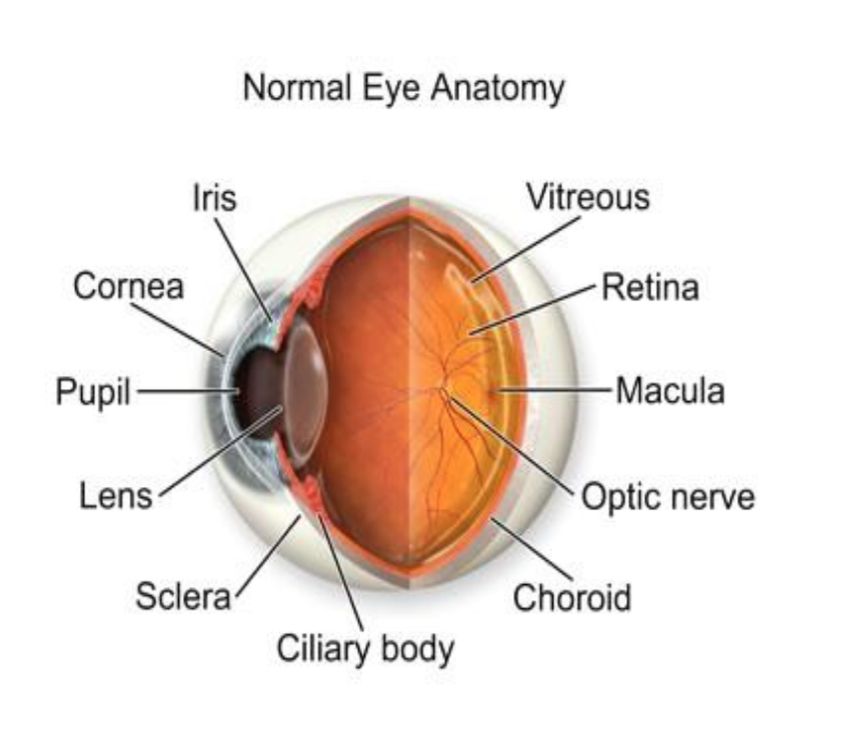
Cataracts are a common and unavoidable part of life. Everyone develops a cataract in life, and this can be accelerated after vitrectomy surgery for example after retinal detachment surgery.
If glasses no longer work, cataracts require surgical removal to restore visual acuity (clarity or sharpness of vision).
It is important that you choose the right surgeon for your cataract surgery. This is one of the most important decisions you can make. Mr Mahi Muqit has extensive expertise in routine and complex cataract surgery as well as access to the latest technology and equipment.
What symptoms do cataracts cause?
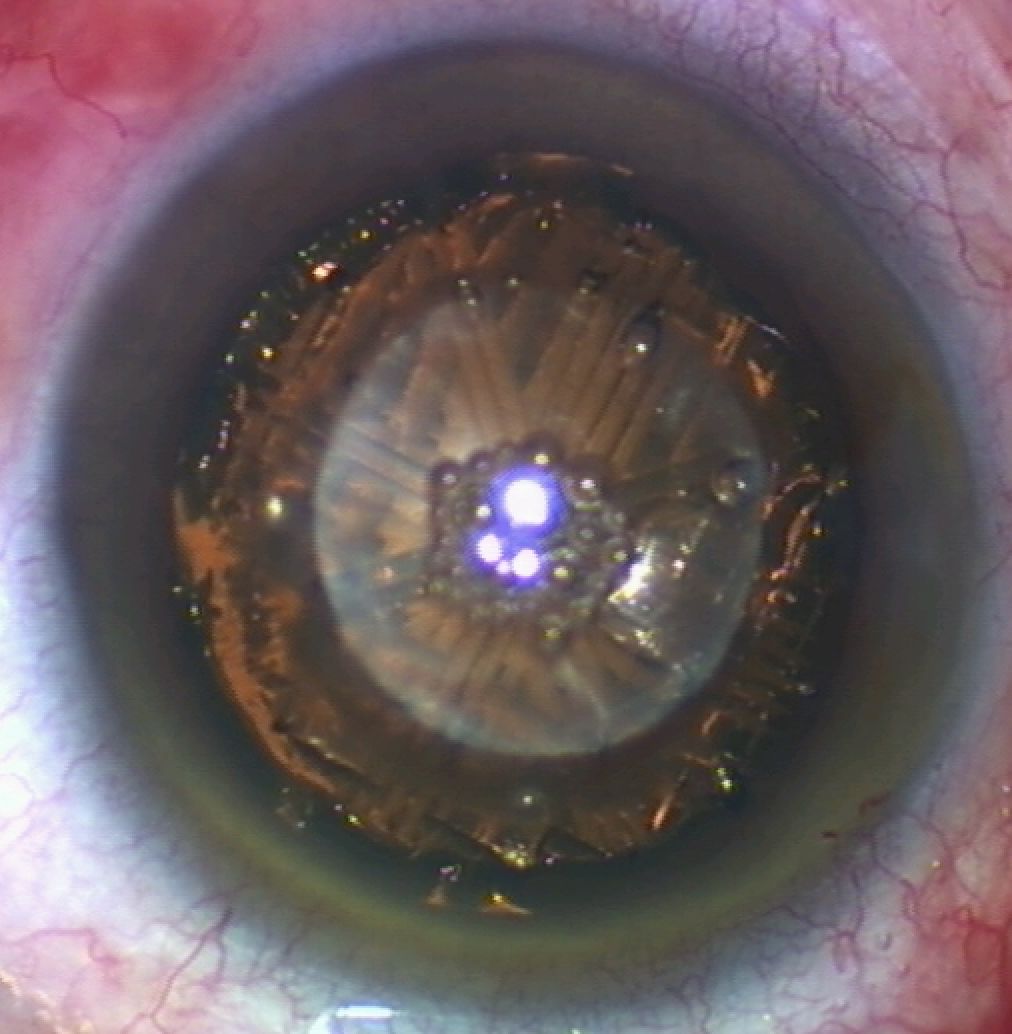
Cataracts usually form slowly over years causing a gradual blurring of vision, which eventually is not correctable with glasses. In some people the vision can deteriorate relatively quickly. Developing a cataract can also cause glare, difficulty with night-time driving and multiple images in one eye which can affect the quality of the vision.
Do I need any special tests before the operation?
Yes. Special tests “biometrics” are required to determine the strength of the IOL that is inserted into the eye. These tests are done before the operation day, preferably at your first clinic attendance.
However, if you wear contact lenses, you must leave them out for the following time prior to your special biometric tests that can be arranged later:
- 1 week for soft lenses
- 2 weeks for any types of rigid lenses including gas permeable lenses.
Cataract Surgery Operation
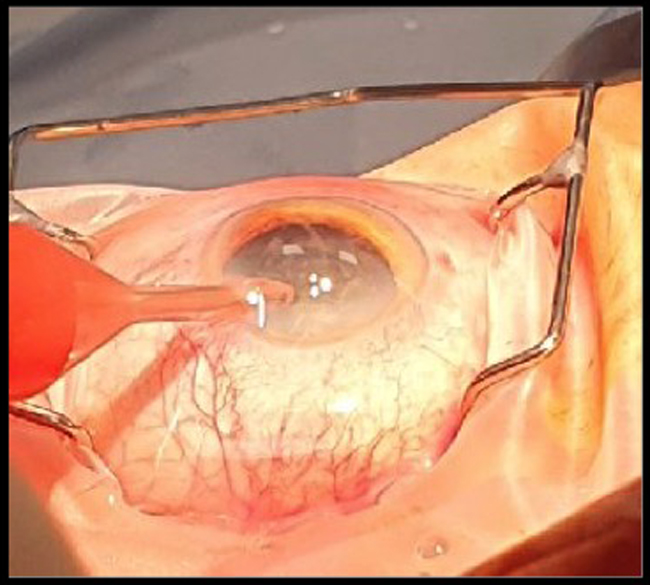
What will my vision be like after cataract surgery?
Intraocular Lens Implant
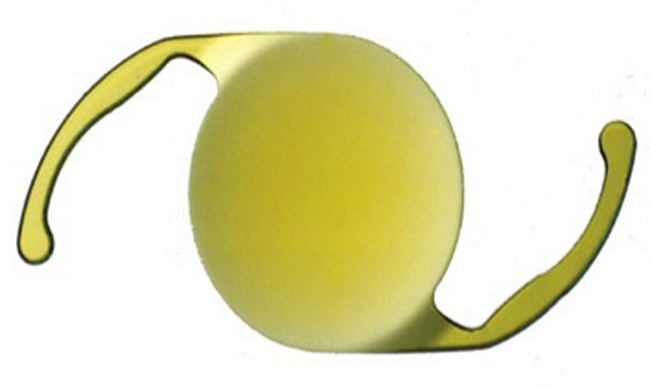
Vision after Surgery
A cataract in your eye scatters and absorbs blue light selectively. After surgery, your lens implant/IOL is very clear so a change in colour vision is common. This can be dramatic, especially in the early period after surgery, and can make colours look brighter or bluer than usual, until the eye becomes acclimated to the new, clear lens implant.
Most lens implants have ultra violet (UV) blocking built in, but you can use sunglasses when outdoors in bright sunlight to block excess UV light reaching the retina.
With the new IOL, however, your focusing power and vision will soon be restored. You will see normal size images and shapes, and your depth perception and side vision will appear natural.
Lens Implant Exchange and Replacement Surgery
Mr Mahi Muqit has expertise in complex cataract surgery and is able to restore vision in patients who have lens implant complications, and for patients where the lens implant has become “cloudy” or fallen “dislocated” inside the eye. He is a leading expert in Artisan IOL surgery at Moorfields Eye Hospital and Moorfields Private.

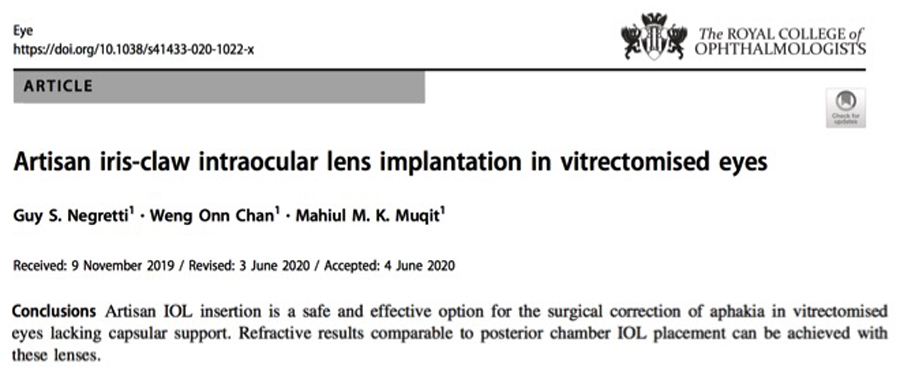
To book an appointment call +44 7717 203564 or email pp@retinasurgeon.uk.com
Treatments & Surgery

Hole
A small, circular gap opens up at the centre of the retina. Causes blurred vision and distorted vision, and patches of missing vision at the centre.

Disease
You must be screened for diabetic retinopathy, as you may not notice changes to your vision. Diabetes damages small blood vessels of the retina, leading to bleeding in the retina and fluid leakage at macula.

Detachment
The retina is the light sensitive film at the back of the eye and retinal detachment is an emer gency wher e the retina peels away to cause a shadow or loss of vision.

Floaters are shapes that people can see drifting across their vision. Floaters are small bits of debris floating in the vitreous jelly inside the eye.

Traction
The vitreous gel shrinks and pulls away from the macula, but the vitreous remains partially stuck and pulls on the macula surface to cause mechanical traction

Surgery
Mahi Muqit performs routine and complex cataract surgery for all types of cataract and vitreoretinal patients, and has expertise in lens implant exchange surgery.

Membrane
Scartissues forms over the Macula, it contracts, crumples, and squashes the Macula resulting in distorted and/or blurred vision.

Surgery
Mahi Muqit performs a wide range of surgical procedures, and offers a comprehensive vitreoretinal surgery service.



